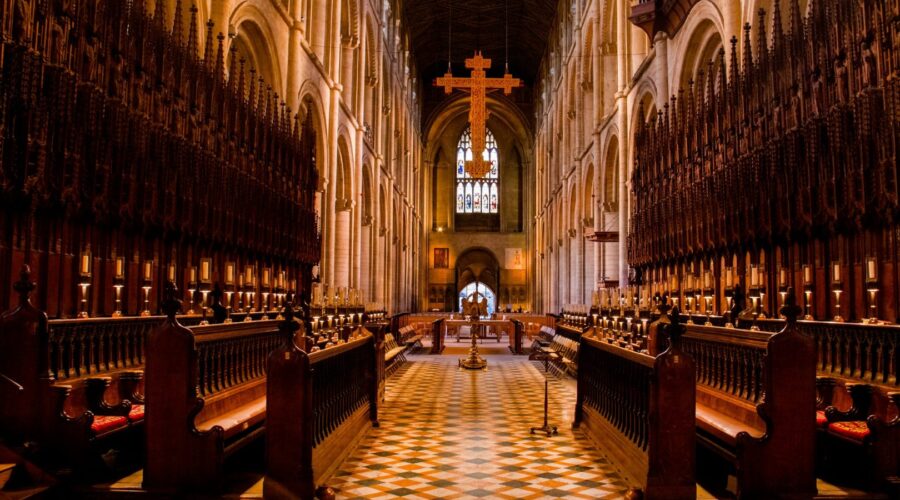Your cart is currently empty!
Discover the Richness of Orthodox Christianity: A Comprehensive Guide to History, Beliefs, and Practices

Introduction
Orthodox Christianity, an ancient and vibrant branch of Christianity, holds a profound spiritual and cultural significance for millions worldwide. Its history, beliefs, and practices offer a rich tapestry of tradition, faith, and community. In this comprehensive guide, we will delve into the depths of Orthodox Christianity, exploring its origins, theology, liturgical practices, and spiritual disciplines.
History of Orthodox Christianity
The roots of Orthodox Christianity can be traced back to the first century A.D. and the teachings of Jesus Christ. Early Christian communities spread throughout the Roman Empire, and the Orthodox tradition developed as a distinct branch in the East. The Great Schism of 1054 A.D. separated the Orthodox Church from the Western (Catholic) Church over theological and ecclesiastical differences.
Key Events in Orthodox History
- 1st century A.D.: Birth of Jesus Christ and the establishment of the early Christian Church.
- 4th-7th centuries: Ecumenical councils establish foundational doctrines and practices.
- 1054 A.D.: Great Schism separates the Orthodox and Catholic Churches.
- 11th-15th centuries: Byzantine Empire as the center of Orthodox Christianity.
- 16th-20th centuries: Russian Orthodox Church’s expansion and influence.
Beliefs and Theology
Orthodox Christianity is based on the teachings of the Bible, the writings of the Church Fathers, and the decisions of Ecumenical Councils. Its core beliefs include:
- The Holy Trinity: God as Father, Son (Jesus Christ), and Holy Spirit.
- The Incarnation: Jesus Christ as both human and divine.
- The Resurrection: Jesus Christ’s victory over death and sin.
- The Church: A visible and invisible community of believers, guided by bishops and priests.
- The Sacraments: Seven essential rites that convey God’s grace (Baptism, Confirmation, Eucharist, Confession, Anointing of the Sick, Holy Orders, Marriage).
Liturgical Practices
Orthodox worship is centered on the Divine Liturgy, a central act of communal worship. It involves:
- Prayer and hymns
- Scripture readings
- Sermon
- Eucharist (Holy Communion)
- Liturgical calendar with feasts and fasts
Features of Orthodox Liturgy
- Use of icons and vestments
- Emphasis on community and participation
- Symbolism and allegory throughout
- Incense and ritual gestures
- Liturgical language (often Greek or Old Church Slavonic)
Spiritual Disciplines
Orthodox Christianity emphasizes a life of prayer, fasting, and almsgiving as means of spiritual growth. Key spiritual disciplines include:
- Prayer: Regular and sustained conversations with God.
- Fasting: Abstinence from food and drink for spiritual purification.
- Almsgiving: Charitable acts towards those in need.
- Pilgrimage: Journeys to holy sites for spiritual enrichment.
- Monasticism: A life of dedication to God in a community setting.
Benefits of Spiritual Disciplines
- Cultivate a deeper relationship with God.
- Strengthen self-discipline and humility.
- Purify the mind and heart.
- Open one to the presence of the Holy Spirit.
- Prepare for eternal life.
Modern Orthodox Christianity
Today, Orthodox Christianity is practiced by millions worldwide, with major concentrations in Eastern Europe, the Middle East, and North America. It faces challenges related to globalization, secularism, and interfaith dialogue. However, Orthodox Christianity continues to offer a profound and enriching spiritual path, rooted in tradition and open to contemporary realities.
Contemporary Issues and Challenges
- Preserving tradition while adapting to changing cultural landscapes.
- Addressing social issues such as poverty, inequality, and environmental degradation.
- Promoting interfaith dialogue and cooperation.
- Nurturing youth and young adult involvement.
- Responding to the challenges of modern science and technology.
Conclusion
Orthodox Christianity stands as a formidable pillar of Christian tradition, with a rich history, profound beliefs, captivating liturgical practices, and transformative spiritual disciplines. Its teachings and practices offer a path to a deeper connection with God, communal worship, and a life of meaning and purpose. Whether you are a curious seeker, a devout believer, or simply seeking to expand your knowledge, the world of Orthodox Christianity beckons you to explore its timeless truths and eternal wisdom.